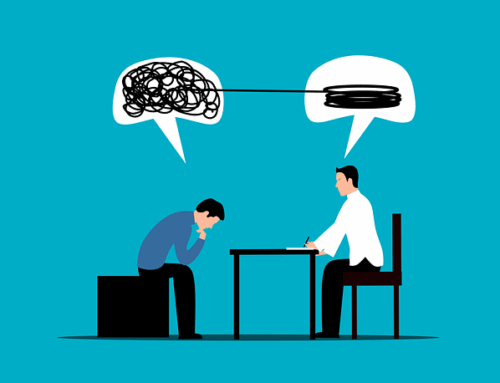Like most, there was a time when I didn’t really think that couples therapy could improve my relationship much.
My wife and I actually did some couples counselling before we got engaged. It helped in numerous ways and really set us on a good path to start our marriage. We still use several of the principles and strategies we learned under our seasoned couples counsellor.
Two years into marriage and one child later, time has multiplied the benefits of the decision we made to troubleshoot some of our differences and learn healthy ways of connecting and conflict resolution.
I would suggest to you that, whether you have a specific issue to work on or not, the benefits of couples therapy could be manifold, and the earlier you start, the better.
If you’re not even sure whether the two of you need help, consider the following four ways couples therapy works:
1) Couples Therapy Helps You Get Unstuck
I’ve felt for some time that a good way to think of therapy for most people is as a catalyst. Sure, you can heal from depression with time and effort, provided you’re headed in the right direction. But it sure helps to have someone to process with: someone who understands mental health issues and can point you in the right direction to speed things up and troubleshoot effectively.
The same holds true for couples therapy. Yeah, this might simply be a rough spot for the two of you, or a season because of kids, health concerns, stress, etc. But if you spend a few bucks, a trained therapist might help grease the wheels and get you closer to where you want to be much faster. Moreover, it might help future-proof your relationship so that the next time you’re in a similar kind of rough spot, you’re ready to deal with it more quickly.
In short, couples therapy can be used to unstick your relationship and catalyze closeness and connection.
2) Couples Therapy Helps Improve Intimacy
No relationship succeeds without a sense of closeness and safety, and plenty of couples suck at it (especially when the going gets tough). But it’s something you can work on and even make a habit.
Understanding and managing emotions (both your own and how you deal with others) is a skill, and therefore something you can become more competent with. A good couples therapist will help you do just that so that you can stay close and, when something has drawn you apart (a fight, time apart, life transitions, stress), you can return to one another and draw close, feel safe, etc.
3) Couples Therapy Helps Improve Conflict Resolution and Management
A good couples therapist will hopefully have a grasp on common compatibility as well as emotional/relationship do’s and don’ts. Most will spend part of some sessions watching the two of you and taking some notes. You especially want to watch out for what Drs. John & Julie Gottman call the 4 horsemen. Thankfully, these behaviours can be stopped and “antidotes” put in their place for best practice and relationship longevity.
In my first couple of sessions with most couples, I’ll have them take home a relationship inventory that they fill out separately (i.e. don’t discuss answers until after they fill it out). It’s one that’s scientifically verified and covers a few different areas of importance for relationships. It gives both myself and the couple an idea of areas of improvement, as well as ways that the two parties may differ.
We all have blind spots. Professional insight can help you see things you didn’t even know you needed to work on!
4) Couples Therapy Helps Us Move Past Cheating and Other Hurts
Some of us hold grudges more than others, but any couple can be at risk for developing resentment if old hurts (recent and distant past) aren’t dealt with appropriately. Infidelity, unsurprisingly, devastates a relationship, but it can be worked through, and couples therapy works particularly well here.
If you’re committed to the relationship but struggling to get over past hurts (whether from each other or from someone else), couples therapy can help you put those things behind you. It can be especially helpful to have a trained mediator keep you both on track and facilitate re-connection and forgiveness.
Like in all therapy, the therapist can’t do it for you, but they can sure help. Even if you have most of your relationship together, some “hygiene” with an insightful therapist can help fine-tune and future-proof your connection.
Hope this has been a helpful post for you. If you or someone you know needs a therapist, check out my webpage for more information about my practice, and don’t be afraid to reach out!






Leave A Comment